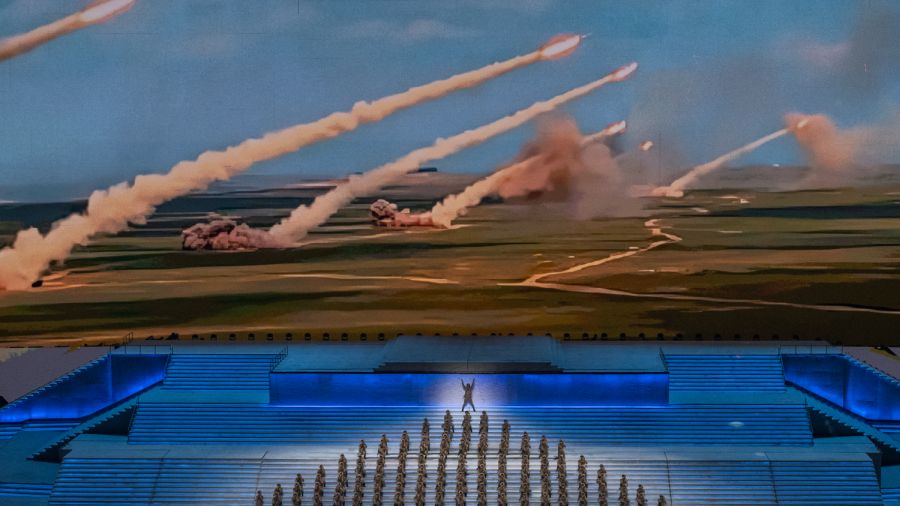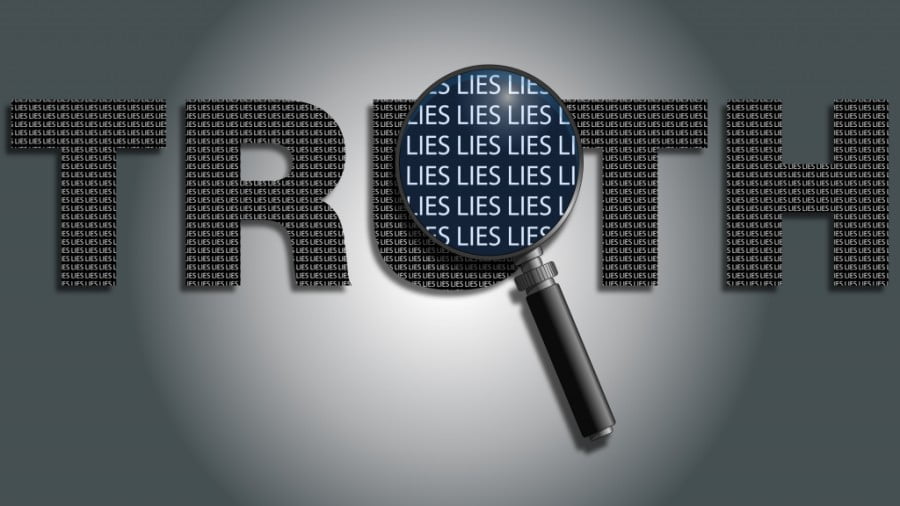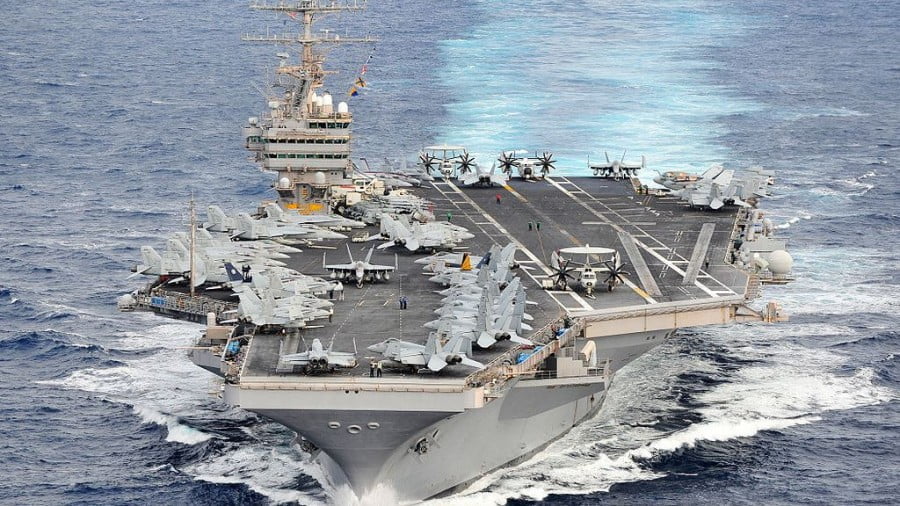War With China! Another Bright Idea from the Yankee Capital
Discussions of war with China over Taiwan often assume a short, regional war won by superior American technology, after which things go on approximately as before. A few observations:
First, overconfidence is an occupational disease of militaries and militarists. Wars very often fail to proceed according to the expectations of the aggressors and not infrequently end in catastrophe. The American Civil War was expected to be over in an afternoon at First Manassas; wrong by four years and 630,000 dead, equivalent to over six million today.
When Napoleon invaded Russia, he did not foresee Russian troops marching in Paris, which is what happened. When Germany invaded France in 1914, it expected a short, victorious war of movement, and got four years of a losing attrition war. When the Japanese attacked Pearl Harbor, GIs sleeping with their daughters in Tokyo was not among their war aims, but it is what happened.
When the French went back into Vietnam after WW II, being catastrophically defeated by les jaunes at Dien Bien Phu was not a strategic objective. When America invaded Vietnam, Washington did not expect a panicked flight from atop the Embassy. When Hitler invaded Russia, GIs in Berlin were not in his plans. When Russia invaded Afghanistan, it did not expect the same outcome that the Americans should have expected, but didn’t, when they did exactly the same thing. The list could be extended. Caution often is a wiser plan than martial enthusiasm.
Second, America starts its wars by overestimating its own capacities, underestimating the enemy, and misunderstanding the nature of the war it is getting into. There is probably a manual on this. Usually the US has no end game and no “what if” plan in case the unforeseen occurs. These traits are clear in America’s wars since Korea.
The reason for this curious behavior is that war is only tangentially a rational endeavor, being chiefly a limbic, instinctually driven habit probably of genetic provenance. War is just what men do, tribe against tribe, country against country, empire against empire, world without end. War is a major, perhaps the major, focus of human endeavor. A glance at history reveals it to be chiefly a tapestry of war. The literature of civilizations reflects this: The Gilgamesh Epic, the Iliad, the Aeneid, El Cid, Orlando Furioso, Lord of the Rings.
Does America have a clear reason for defending Taiwan? It is not of vital importance to America, and arguably not of minor importance. Few Americans know quite where it is, and few can distinguish it from Thailand. If it became part of China almost no one would notice. Before getting into an unpredictable war with a massively populous nuclear power of formidable economic and military resources on the other side of the world, it might be wise to answer the question, “Why? What do we gain? How do we get out of said war?”
Regarding war in Chinese waters:
The US fleet has not been in combat since 1945, over seventy-five years ago. American pilots have not flown against a competent enemy since 1973, almost half a century ago. Enormous changes in technology and armament have occurred in the intervening years. Nobody really knows what a battle of naval forces against modern antiship missiles would look like. Those who can guess are not sanguine. Most warships today lack armor. Anyone looking at what a couple of French Exocet missiles did to the USS Stark in 1987 would not bet on equally unarmored Ticos or Arleigh Burkes. An aircraft carrier is a large bladder of aviation fuel wrapped around high explosives. Look at the accidental launch in 1967 of one Zuni five-inch ground-attack missile aboard the USS Forrestal, igniting raging fires, cooking off bombs, killing 134 sailors and putting the ship in the repair yard for many months.
Militaries grow slack in extended periods of peace. Training decreases to save money. War stocks of tank treads are cannibalized for training and aren’t there when war comes; the company that made them has gone out of business. Supplies of critical parts dwindle as budgets go to procurement of future hardware. After all, nobody really expects war. Rapid mobilization, it turns out, is impossible.
If the war was not won as quickly and decisively as hoped, as it very likely would not be, would an American public already under severe economic stress support the heavy cost of a war having no obvious end point or relevance to their lives? Conscription?
Within the Beltway many seem to think that China is Cambodia with more people. Some in Washington harbor a residual belief that America is militarily supreme, that its mere entrance into war seals the outcome. Think again, carefully. Rand has wargamed regional war in the Strait and South China Sea and concluded that America has a very good chance of losing. he Chinese are smart, and excellent engineers. Chinese students dominate America’s best technical universities and the elite high schools. CalTech and MIT, for example. Look at the Chinese space program, the upcoming 360 mph maglev trains using high-temperature superconductivity. The Chinese are not little-leaguers. They have put many resources into antiship missiles specifically designed for US carriers. These, note, greatly outrange carrier aviation. Iraq was predicted to be a “cakewalk.” China won’t be.
Allies? In naval circles there is much talk about the First Island Chain and an assumption that Japan will join a war against China to protect Taiwan, or at least let its bases be used by American forces. Are we sure? Japan is within missile and air range of China. All of its petroleum arrives by sea, and China has pretty decent submarines. Japan’s trade mostly moves by sea. China is a crucial trading partner whose elimination in a war would devastate the Japanese economy. Japan is close to China. America is not. Tokyo might worry that America would grow weary of the war and go home, as it usually does, and leave Japan, all alone, in a shooting war with China. How would that end?
What stake does Japan have in the independence of Taiwan? Today it trades with both Taiwan and China. If China absorbed the island, Japan would continue trading with both. Only the letterhead would change. Are we quite, quite sure Tokyo would want any part of this?
South Korea? Its cities and entire economy are within missile range of China. Does it really want to get into a shooting war with its huge neighbor, which has a land border with the peninsula, to maintain American hegemony in the Pacific? Having gotten into a war, how would it get out? The Koreans may have thought of this.
Wars as imagined inside the Beltway often seem to assume that the enemy will just lie there and be bombed without doing anything untoward or unexpected. Are we sure? The United States has 28,000 troops and their families within range of Chinese weaponry, the killing of whom would force Washington into desperate measures. Could China encourage North Korea to attack southward, creating a two-front war far beyond Washington’s ability to handle? Or Kim to think he saw a chance and attack on his own initiative? Might China annex Myanmar? Perhaps this is farfetched. Perhaps it isn’t. Remember that nobody expected China’s entry into the Korean war.
One might suspect that Taipei, seeing overwhelming forces arrayed against it across the Strait, will one day cut the best deal it can with Beijing rather than be devastated first and then have to accept whatever conditions Beijing chose to impose. It could get a sweetheart deal as Beijing would much prefer this to invading with all of its risks. Here is a factor I am not competent to judge, but that might be worth judging: The Chinese, as I knew them long ago when I lived in Taiwan, are (very) racially aware and nationalistic. The Taiwanese are Chinese. You can bet they know of the Legations, the Opium Wars, the Boxers, the burning of the Summer Palace, the Korean War. As I write, the most popular movie on the mainland is about a Chinese victory over Americans in the Korean War.
What might a Chinese attack on Taiwan look like? The Chinese general staff mysteriously does not confide in me, but a good guess is easy. The Chinese often do beach-assault exercises on their side of the strait, obviously practice for the genuine assault. One of these turns suddenly into the real thing. Ballistic missiles crater Taiwan’s military runways, missiles in large numbers hit air defenses. Troop ships head for Taiwan, getting there in eight hours at fifteen knots, helicopters and paratroops in less. China’s large and reasonably good air force bombs and bombs and bombs. After twenty-four hours, the US is still trying to decide what is happening, talking to the JCS, asking the President what to do.
Nathan Bedford Forrest, the talented Confederate general, is said to have said that the secret of victory is to “git thar fustest with the mostest.” In the event of a surprise attack, how long would it take—in the real world, not in PowerPoint slides—for America to get there with how much of what? If the Chinese got substantial forces ashore, it would be the end of the story. Keeping troops out of an island is one thing, getting them out quite another. Not even John Bolton—perhaps not even John Bolton—can imagine that America could win a land war with China in Asia. Selling the American public on a large war over things in which it has no interest would be difficult. Under these circumstances, the chances are nonnegligible that the US would make loud noises, huff and puff, save face as best it could, and do nothing.
But let us assume that Washington fought and lost the regional war, Taiwan perhaps surrendering after the U.S. lost a dozen ships and a carrier was disabled. What would Washington do after such a humiliation? Never underestimate the influence of vanity on world affairs. The hawks in DC have elevated titles and, sometimes, considerable ability, but they also have the same hormones and egos as patrons in Joe’s Bar in Chicago. A Chinese victory in the style of Tsushima Strait would end the world’s view of America as an invincible hegemon. The fernbar Napoleons might well decide to up the ante and turn a regional into a world war. This it would win. “Win.” Perhaps by blocking the Strait of Malacca and threatening the Three Gorges Dam. The expectation in the Pentagon would likely be that Beijing would see the futility of resistance and surrender. But if it did not?
America’s trade with China in goods in 2020 was \$660 billion, \$120 billion of that being exports, making it America’s largest trading partner… Cutting this off would wreck the American economy. This is far more than a matter of iPhones and cheap plastic buckets for Walmart. Though most may not know it, America is an economic dependency of China. The US gets from China countless things it cannot make but cannot do without. For example, cars require computers to control their ignition and transmissions. Where do we think these are made? Companies like Boeing sound American but many vital assemblies come from China. High-end semiconductors, crucial to today’s economies, come predominantly from East Asian companies, notably Taiwan Semiconductor Manufacturing Company and Samsung, both of which would be hostage to Chinese attack. The great majority of rare earths, critical to the manufacture of chips, come from China. Similar considerations exist for industry after industry. While America has the technology to make most of the things it gets from China, it does not have the manufacturing capacity, and would need years to develop it.
Has anyone in Washington checked industry by industry to see what the effects of the end of imports would actually be?
Further, China is the largest trading partner of most of the world, Germany and the European Union for example, and close with most of the rest. If an American war took China out of the global supply chain, the resulting depression would make 1929 look like the height of prosperity, turn the entire earth against the US, and likely lead to the lynching of everyone in Washington.
Never mentioned is that America is trying, with considerable success, to block China’s economic progress by preventing its acquisition of advanced semiconductors. Taiwan Semiconductor Manufacturing Company, the world’s largest and most advanced manufacturer of chips, is in Taiwan. Reunification of Taiwan with China would solve this critical problem. Beijing has probably thought of this.
Considering the costs, risks, and benefits if any of such a war, the question may be, “How bright an idea is this?”







